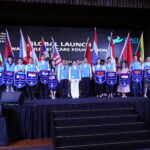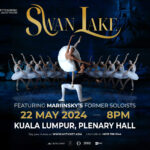In today’s competitive world, hiring a professional speaker for your event can boost its quality (1) and leave a lasting impact on your audience. Whether you’re putting together a corporate seminar, a motivational workshop, or a community event, choosing the right time to hire speakers is essential to ensure everything goes well. This article looks at the factors to consider and the best times to book speakers to meet your event’s needs. However, timing can be tricky, but it’s important to get it right. Although many people don’t realize this, the timing can make a huge difference.
Why Timing Matters When Hiring Motivational Speaker in the Philippines
Hiring a speaker is not just about finding someone who can deliver a great talk (this is important). The timing of when you hire them impacts their availability directly, the overall cost, and the seamless integration of their content into your event’s agenda. However, the earlier you plan and finalize, the better positioned you are to secure renowned speakers who align with your event’s goals. Although it may seem like a small detail, planning can save you a lot of trouble later on (because it allows for better options).
Speaker Availability
Well-known speakers usually schedule their events months (or even years) ahead of time. If you delay too long, you might lose your top choice speaker to other obligations. Early planning can also give you a wider range of options to select from. However, it’s important to act quickly, because timing can be everything in securing the right speaker for your event. Although it may seem like a hassle, this step is crucial to ensuring a successful engagement.
Cost Efficiency
Booking a speaker at the last minute can lead to (1) premium charges, however, this is often due to the speaker’s limited availability. By planning ahead, you can negotiate better fees (2) and avoid additional costs that are related to rushed preparations. Although it might seem convenient to wait, it can actually be more expensive in the end.
Content Customization
Getting in touch with a speaker early gives them enough time to adjust their content to match your event’s unique theme and audience needs. This (1) makes sure the talk is engaging and impactful. However, if you wait too long, you might miss out on a great opportunity. Although it may seem like there’s plenty of time, planning ahead can really pay off.
Key Considerations Before Hiring a Speaker
Before you lock in a date, it’s really important to figure out specific parts of your event. There are some key things to think about:
1. Define Your Event Objectives
Clearly outline what you hope to achieve with your event: Are you looking to educate, inspire, or entertain your audience? Defining these goals will help you identify speakers (who specialize) in delivering the desired outcomes. However, you should also consider the type of audience you have. This is important because different groups respond to different styles of presentation. Although it may seem simple, understanding your audience can make a huge difference in the success of your event. But remember, it’s not just about the speakers; it’s also about how well you connect with the people attending.
2. Understand Your Audience
The demographics (and preferences) of your audience should play a major role in selecting a speaker. For instance, a young, tech-savvy crowd may resonate better with a dynamic, interactive presentation; however, a professional, corporate audience may prefer a structured, data-driven talk. Although both types of presentations have their merits, this choice is crucial because it directly affects engagement and understanding.
3. Budget Planning
Speakers’ fees can change a lot (1) depending on their experience, expertise and demand. It’s important to determine your budget early on, however, you should also think about related expenses. This includes things like travel, accommodation and audiovidual support. Although these costs might seem small, they can add up quickly.
4. Event Timeline
Having a clear timeline (it helps you) decide when to reach out to potential speakers. Typically, speakers are hired 6-12 months in advance for large-scale events; however, smaller engagements may require a shorter lead time (because they are less complex). This can make planning easier, although it can be tricky at times.
When Is the Best Time to Hire Speakers?
1. For Annual Events
For annual (or recurring) events, the best time to hire speakers is right after the previous year’s event ends. This gives you a head start: you can secure top talent and refine your program months in advance. However, some people wait too long, which can lead to missing out on great options. Although it might seem tempting to rush, taking your time is important. Because this planning can make a big difference, it’s wise to start early.
2. Corporate Events
In corporate settings, it’s usually best to book speakers (at least) 6 to 8 months before the event. This is important because it allows time for tailoring content and getting approvals from stakeholders. However, it also gives time for promoting the event with the speaker’s name attached. Although some may think that booking earlier is unnecessary, this can make a big difference in the event’s success.
3. Academic or Educational Conferences
Educational events often need specific expertise (niche knowledge), which can lead to a few limited speaker options. In these situations, a lead time of 9 to 12 months is important, because it ensures you can reach out to the most qualified individuals. However, planning ahead can be challenging, although it is necessary for success. This preparation can make a big difference in the quality of your event.
4. Last-Minute Bookings
When unexpected events come up (or if you need to plan at the last minute), it’s a good idea to find speakers who are available (and) close by. This helps reduce travel issues. However, in these situations, working with a speakers’ bureau can speed things up. Although it may seem like a hassle, having the right support can make a big difference. Because the right speaker can engage your audience, finding them quickly is essential. This is why understanding your options is important.
1. Research and Shortlist
Use online platforms (like social media), speaker directories and suggestions from peers to make a list of possible candidates. You should review their previous engagements, expertise and audience feedback to evaluate their suitability. However, keep in mind that not every candidate will be perfect for your needs. This process is important because it helps ensure you find the right fit. Although it may take time, it’s worth it in the end, but be thorough!
2. Leverage Networks
Personal (or professional) networks can be really valuable for finding speakers. Referrals often come with the added benefit of credibility and familiarity with your industry. However, it’s important to remember that not all networks are the same. Some might be better suited for your needs, but this can depend on various factors. For instance, the size of the network and the connections it has can make a big difference. Although it may take time to build these relationships, doing so is worth it because strong connections can lead to better opportunities.
3. Collaborate with a Speakers’ Bureau
Speakers’ bureaus (which are helpful organizations) make the hiring process easier by matching you with speakers that fit your needs. They take care of negotiations, contracts and logistics. This saves you time and effort. However, you still need to consider your audience. Although it might seem straightforward, finding the right speaker is important because it can affect the success of your event.
4. Conduct Interviews
Before you finalize everything, it’s important to conduct interviews or review demo videos of the speaker (this is crucial). Doing so ensures that their presentation style and content resonate with your event’s vision. Maximizing the Value of Your Speaker Engagement is key. Once you’ve secured your speaker, there are several steps to maximize their impact. First, Early Collaboration is necessary: work closely with the speaker to align their message with your event’s theme. Provide them with details about the audience demographics and expectations, because this will help them tailor their presentation. Promotion is also important; you can use the speaker’s reputation as a marketing tool to generate buzz around your event. Highlight their participation in your promotional materials, however, don’t overdo it. Engaging Your Audience is essential: encourage attendees to submit questions or topics for the speaker to address. This adds an interactive element to the session, which makes it more enjoyable. Finally, Feedback and Follow-Up are important after the event. Post-event surveys and feedback can help measure the speaker’s effectiveness. Sharing this feedback with the speaker can also strengthen your relationship for future collaborations, although it’s important to be honest.
Common Mistakes to Avoid
1. Waiting Too Long to Hire
Procrastination can limit your choices (which is frustrating) and often results in higher costs. This is important to consider, however, many people still struggle with it. Although it may seem harmless, putting things off can create problems later on. Because of this, it’s essential to recognize the impact of procrastination on our lives.
2. Not Aligning with Event Goals
Hiring a speaker (without thinking about your event’s purpose) can lead to a disconnect with your audience. This is important to remember, because the right speaker can make all the difference. However, if you choose someone who doesn’t align with your goals, it might not go well. Although it seems simple, many people overlook this key detail. So, always consider the purpose first; this will help ensure a successful event.
3. Ignoring Logistics
Not coordinating travel, accommodation and technical needs can really mess up the speaker’s (1) schedule and the quality of their presentation. This is important, however, many people overlook it. Although it might seem simple, the details matter a lot. If these aspects are not aligned, the speaker may struggle to deliver effectively and that could impact the audience’s experience. Because of this, planning ahead is essential.
Conclusion
Hiring the correct speaker (at the right moment) can change your event from ordinary to extraordinary. By planning ahead and aligning with your objectives, you can ensure a seamless and impactful experience for your audience. Whether it’s a corporate seminar, a motivational talk, or a community gathering, the success of your event hinges on thoughtful preparation and timely action. However, this requires effort and attention to detail. Although it may seem challenging, effective communication plays a crucial role, because it helps everyone stay on the same page. Remember: the right speaker can make all the difference!





